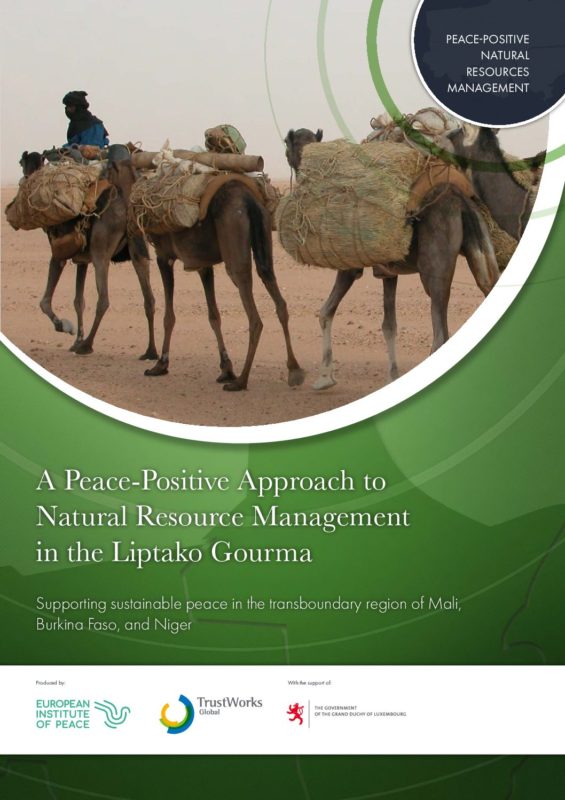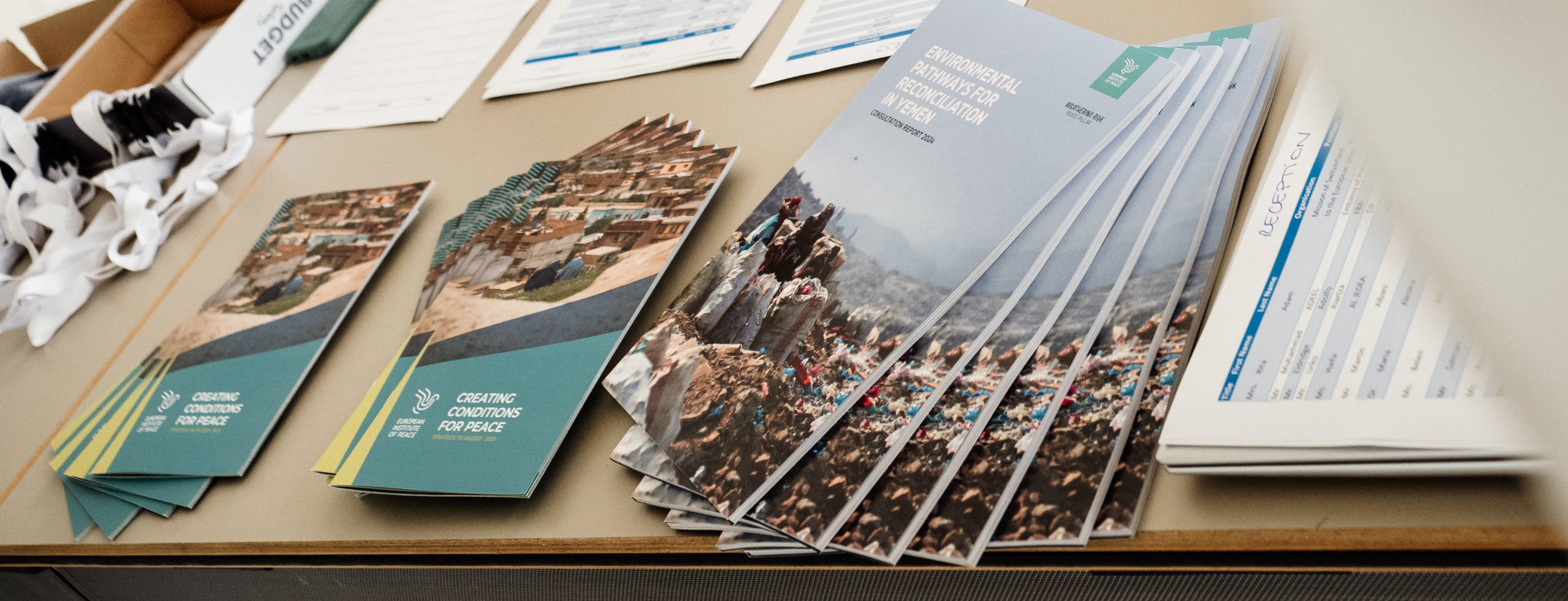A Peace-Positive Approach to Natural Resource Management in Liptako Gourma

Supporting sustainable peace in the transboundary region of Mali, Burkina Faso, and Niger
Disputes over the ownership of, access to, and benefits from natural resources such as land for farming or itinerant livestock herding, water points, mineral resources, and forests – including protected areas – drive and prolong violent conflict in the Liptako Gourma border region between Mali, Burkina Faso and Niger. These countries have been battling increasingly widespread jihadist insurgencies since 2015 and have also experienced severe political instability, with five coup d’états across the three countries since 2020.
Just as the mismanagement of natural resources can drive conflict, better management of natural resources can support peace. These root causes are also exacerbated by the dynamics of climate change and environmental degradation. This paper outlines the rationale, principles, and entry-points for peace-positive natural resource management in the Liptako Gourma region. ‘Peace-positive’ approaches can foster non-violent ways to resolve disputes
over who has control over, access to and benefits from resources, reassert the role of the state and/or traditional authorities in resolving resource disputes, support ‘infrastructures for peace’ (i.e. the social norms and institutions that help to prevent and resolve violence), and address core factors behind livelihood insecurity in the Liptako Gourma region.
This paper is not a “roadmap” and nor it is meant to be provide a “silver bullet”. Moreover, peace-positive natural resource management alone cannot resolve deeply rooted political, economic and social governance issues nor deliver lasting peace to this region. In the face of the extreme levels of violence present in some areas of Liptako Gourma, peace-positive natural resource management may be more effective as a conflict prevention mechanism
ensuring that high-intensity conflict doesn’t spread further, and to support coping and resiliency mechanism, as well as a means to accompany transitions towards stability.
The following is a collection of principles, best practices, and programmatic entry points to inform the participatory, multilevel design of such a strategy by local, national and regional actors in Mali, Burkina Faso and Niger as well as their international partners to better govern natural resources in the Liptako Gourma region. The hope is that these incremental changes, in conjunction with environmentally-informed mediation strategies – outlined in the
accompanying strategic note – may ultimately contribute to more grounded mediation efforts, and to more sustainable and lasting peace in this troubled region.

